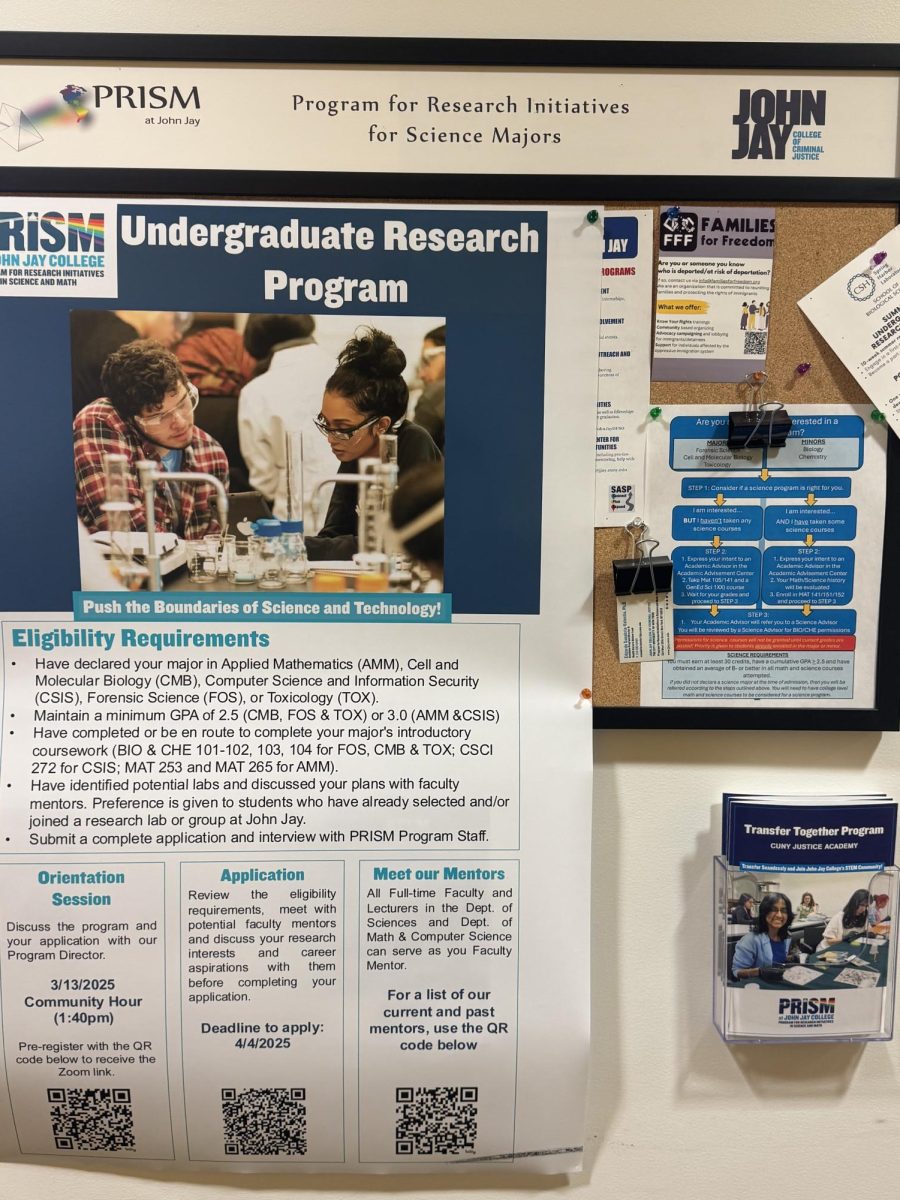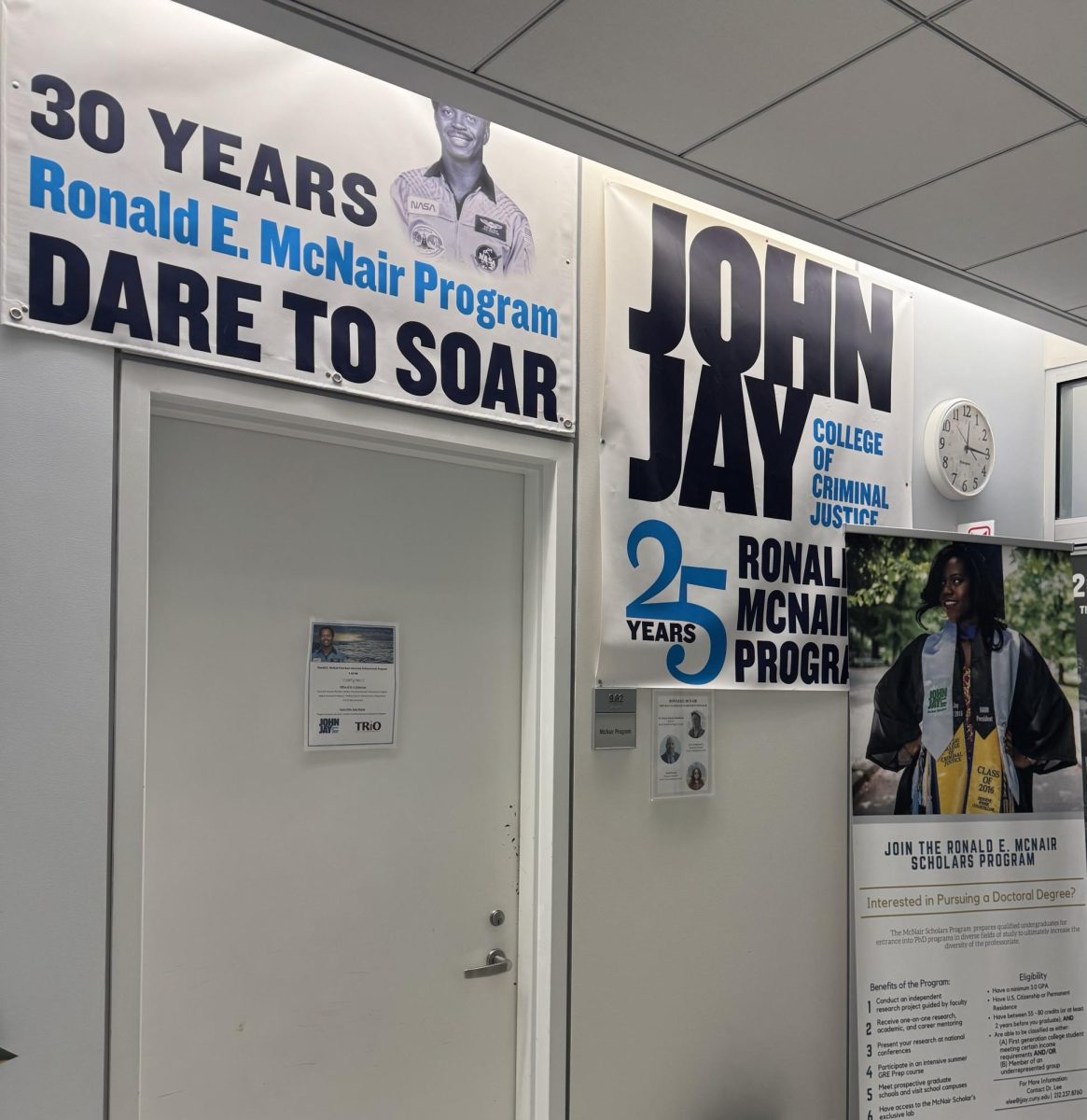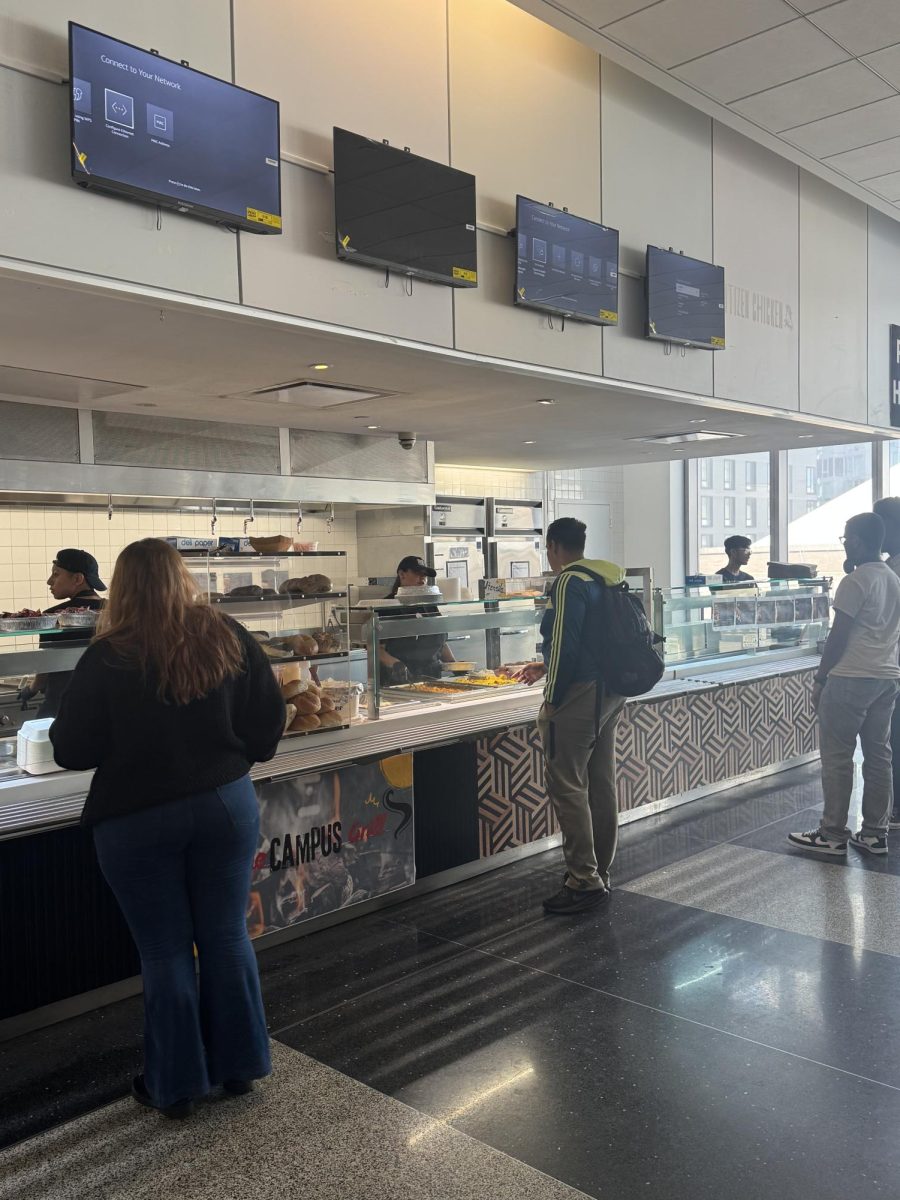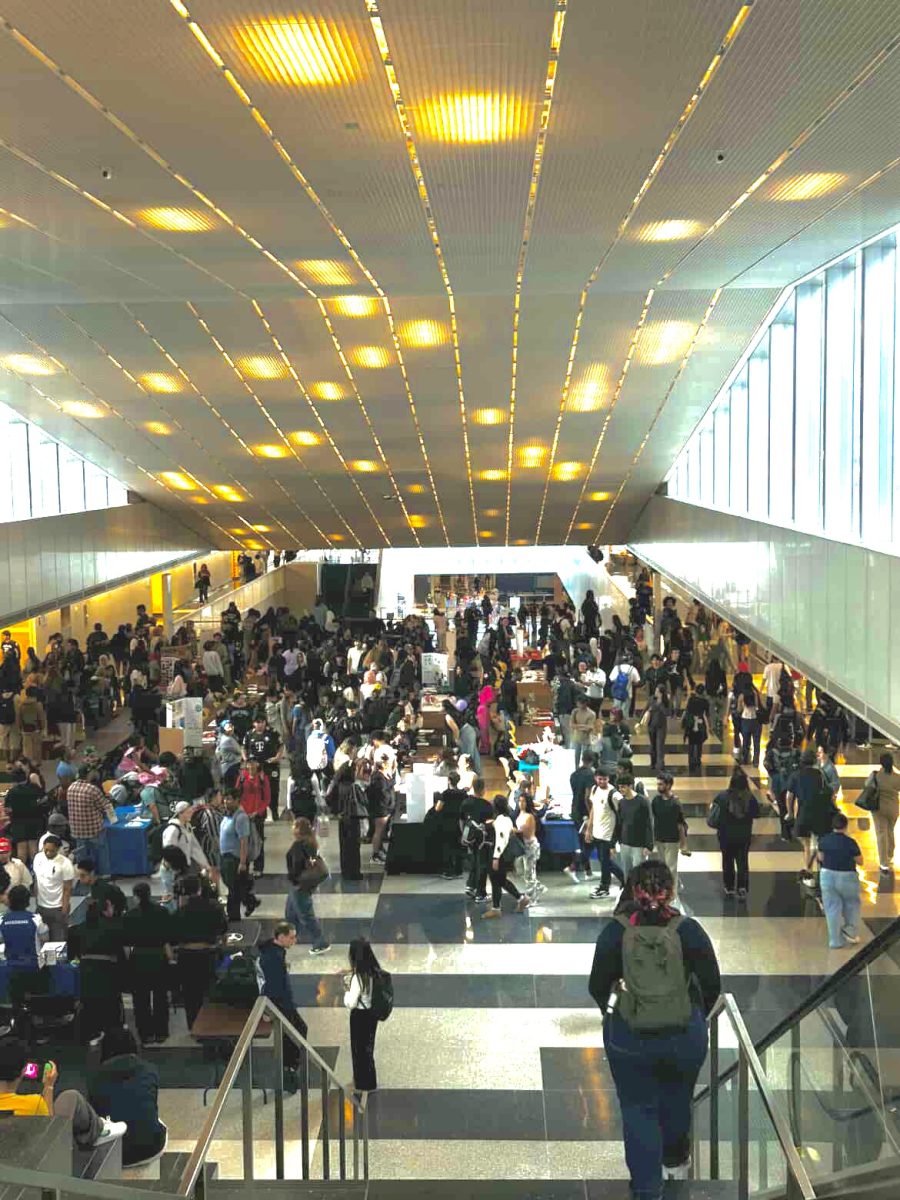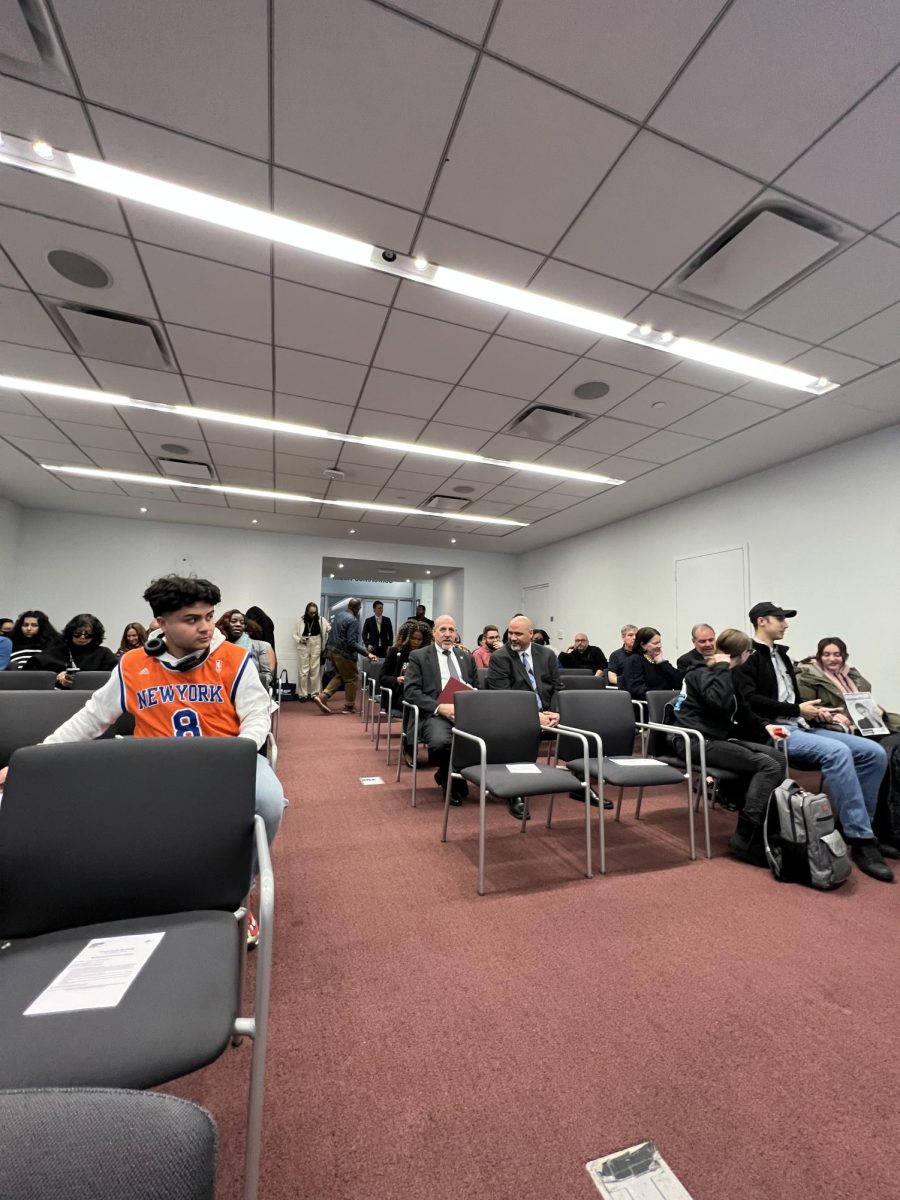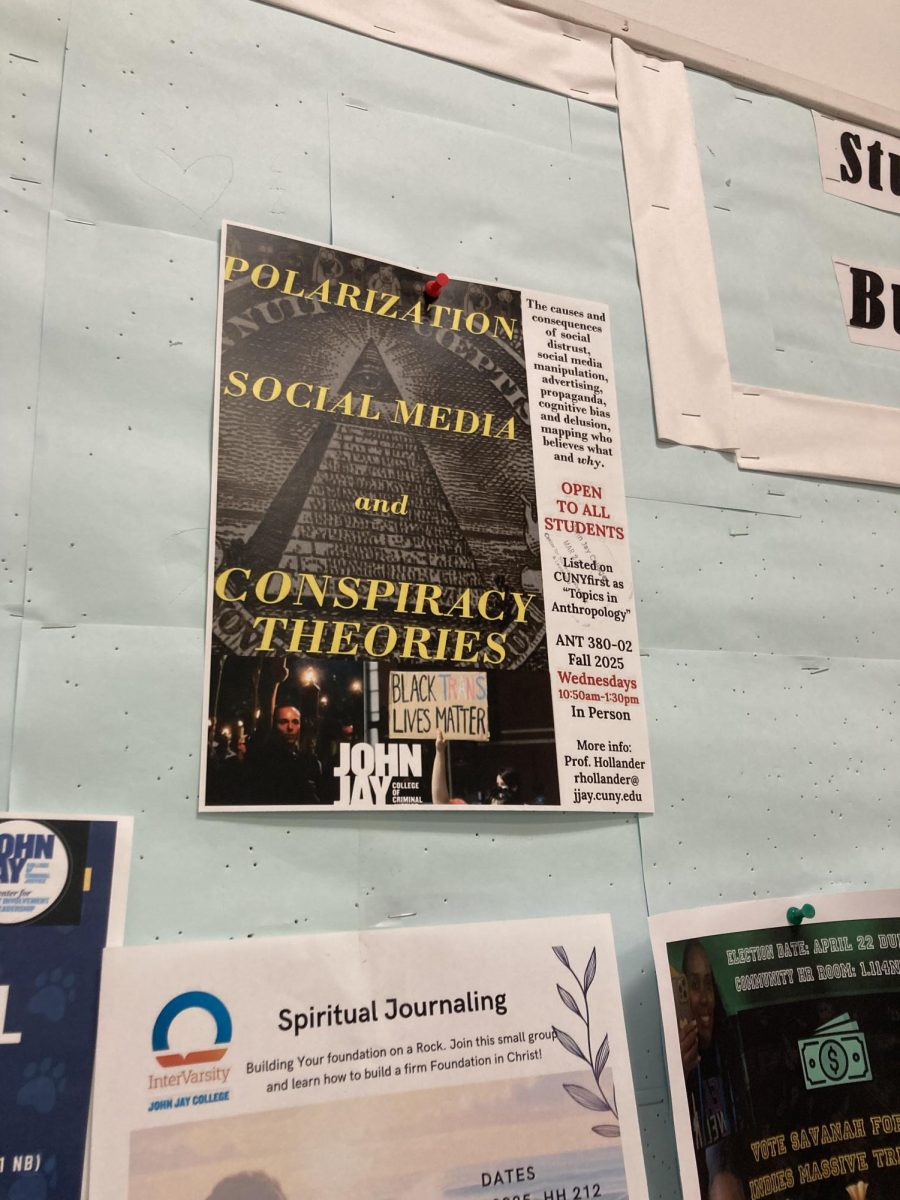Research at John Jay was put in serious question after the Office of Management and Budget released a memorandum temporarily pausing federal funding.
The memo, which was issued on January 27, required agencies to review financial assistance programs and evaluate their compliance with executive orders. The next day, this order was rescinded in an additional, two-sentence memorandum.
The stance of federal funding is still in question, and colleges such as John Jay have been tasked to reevaluate their programs, including the Program for Research Initiatives in Science and Math (PRISM), McNair, Honors, and the Office for Student Research and Creativity, that receive grants from the federal government.
PRISM houses STEM support programs for their students, including the Undergraduate Research Program.
PRISM receives funding from both the federal and state level, with the federal grants coming from the U.S. Department of Education through the Developing Hispanic-Serving Institutions Program. These grants help cover the stipends for students in the program, the salaries of 60-70% of the staff, tuition costs (for programs like STEM acceleration and Early Start), research supplies and equipment for PRISM mentors, and event costs.
According to Rachel Perlman, the Senior Grant Program Manager for PRISM, the aftermath of Trump’s funding memo has been “a bit chaotic,” and “there are a lot of unanswered questions on our end” due to a lack of direct communication from the Department of Education.
On March 20, 2025, Donald Trump issued an executive order declaring his plans to dismantle the U.S. Department of Education, but, although the implications of this are still uncertain, a statement from Secretary of Education Linda McMahon assured that, “Closing the Department does not mean cutting off funds from those who depend on them.”
Edgardo Sanabria-Valentin, the Associate Program Director of PRISM, commented on what this means for STEM research at the college.
“We’re preparing for the worst outcome. We have to be more intentional on what our values are as a program and organization in the level of service we want to supply to our students. On new grants, how do we make sure that we remain true to the purpose that they were intended while ensuring that we provide the services and the support to what we know they need,” said Sanabria-Valentin.
The biggest impact of the uncertainties surrounding federal funding and the Department of Education, according to Sanabria-Valentin, is going to be how the program is able to collect information from students.
The demographic questions that students will fill out will only have two options for gender and sex and will be mandatory.
“They might not reflect reality but it has to be treated as a data point we have to collect,” said Sanabria-Valentin. “It will not affect the way we interact with students. We are committed to maintaining who we are.”

It will also impact the topics that faculty are allowed to pursue for research.
Anthony Carpi, the Vice Provost for Research, International Partnerships, & Student Professional Advancement and the Dean of Research, explained some current faculty projects that have either been paused or cancelled due to the changes issued by the federal administration.
“We had a few international projects shut down,” Carpi explained.
The Office of International Research Partnerships at the college supports developmental work with foreign governments about public safety and policing operations. Two projects funded by the Bureau of International Narcotics and Law Enforcement Affairs to help the local governments of Peru and El Salvador bolster their work in law enforcement and public safety were recently shut down due to the federal funding changes.
Another project evaluating and making recommendations regarding current policy for transgender people in prison in the United States, headed by Debi Koetzle, the Director of the Corrections Lab, was cancelled altogether.
Cordale Jimmison, a sophomore forensic psychology major and research lab assistant to professor Rebecca Weis, expressed his concerns about the current status of research funding.
“Having personal connections to students who are experiencing the budget cuts from NIH, particularly in my lab with Dr. Weiss, is extremely frustrating and sad to see. Watching firsthand the struggles of a doctoral student who has spent the last few years researching a topic encompassing racial inequities is a situation within itself, and cutting funds to their research only exacerbates their situation,” he stated.
The freeze has not only impacted the funding, Carpi explained, but has also introduced uncertainty into current projects.
“We know that other projects are being reviewed, but we don’t know the timeline they’re being reviewed on. The recommendations we have given based on advice we’ve been given from CUNY is that until we hear about a specific project that’s been cancelled or paused, faculty should keep working as normal at the college,” said Carpi.
Perlman elaborated on how the college intends to move forward amidst the uncertainty.
“We are definitely taking a fine tooth comb through our budgets right now to understand where our funds primarily go towards and think strategically for our funds going forward. The main motivator is more about thinking in the future, not about current funding,” she stated.
The goal remains, Perlman explained, to maintain the same services to the students even amidst questions about future funding opportunities.
“Our approach isn’t going to change — we will still be serving all of the students in the STEM majors at John Jay.” ” Perlman stated.
Dr. Carpi also explained that the college is seeking to help faculty think of alternative sources of funding, noting John Jay’s success in receiving grants in the past.
John Jay has been rising in the ranks as a research institution in recent years, as indicated by the university-wide email media release on February 20 announcing that John Jay has been designated under the Carnegie Foundation’s newest classification of a Research College, among six other CUNY senior colleges.
Despite the uncertainty surrounding the future of the Department of Education and federal grants, students and faculty seem hopeful.
Isabella Raneri, a sophomore toxicology major conducting research through PRISM in Carpi’s lab, expressed her optimism as the college navigates uncertain times.
“Although there is a sense of unease, with constant support from the PRISM faculty, I remain hopeful for the continuation of research at John Jay,” she said.



